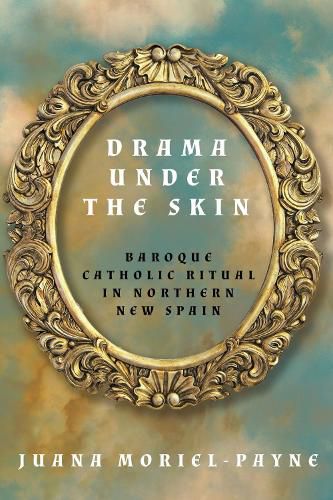Readings Newsletter
Become a Readings Member to make your shopping experience even easier.
Sign in or sign up for free!
You’re not far away from qualifying for FREE standard shipping within Australia
You’ve qualified for FREE standard shipping within Australia
The cart is loading…






Utilizing local analysis to make global conclusions, Drama Under the Skin uses ritual as a lens to examine race and identity formation of both free and enslaved people of African descent and Indigenous groups in northern New Spain. Juana Moriel-Payne proposes that Baroque-Catholic ideology, as social culture, incited and promoted the participation of those peoples in religious rituals.
Through their involvement in fiestas, cofradias, and capellanias, those groups were able to create and/or recreate socio-cultural identities, while transforming and adapting global Catholic practices and beliefs according to their local realities. Intersecting with research about Latin America, Mexico, the African Diaspora, and Borderlands history, Drama Under the Skin charts the impact of global ideas about slavery, race/casta, and identity in areas where people of African descent have not yet received enough historiographical attention.
Heretofore the historiography of northern New Spain has perpetuated an image of an Indigenous-barbarian north under control of the Spaniards. Almost nothing has been said about the active participation of people of African descent, Indigenous groups, and women in cultural affairs.
Moriel-Payne highlights the African Diaspora's resistance mechanisms, analyzing the complex dynamics between Indigenous and African groups in cultural-religious activities, and examines the impact on gender, race, and identity formation.
$9.00 standard shipping within Australia
FREE standard shipping within Australia for orders over $100.00
Express & International shipping calculated at checkout
Utilizing local analysis to make global conclusions, Drama Under the Skin uses ritual as a lens to examine race and identity formation of both free and enslaved people of African descent and Indigenous groups in northern New Spain. Juana Moriel-Payne proposes that Baroque-Catholic ideology, as social culture, incited and promoted the participation of those peoples in religious rituals.
Through their involvement in fiestas, cofradias, and capellanias, those groups were able to create and/or recreate socio-cultural identities, while transforming and adapting global Catholic practices and beliefs according to their local realities. Intersecting with research about Latin America, Mexico, the African Diaspora, and Borderlands history, Drama Under the Skin charts the impact of global ideas about slavery, race/casta, and identity in areas where people of African descent have not yet received enough historiographical attention.
Heretofore the historiography of northern New Spain has perpetuated an image of an Indigenous-barbarian north under control of the Spaniards. Almost nothing has been said about the active participation of people of African descent, Indigenous groups, and women in cultural affairs.
Moriel-Payne highlights the African Diaspora's resistance mechanisms, analyzing the complex dynamics between Indigenous and African groups in cultural-religious activities, and examines the impact on gender, race, and identity formation.